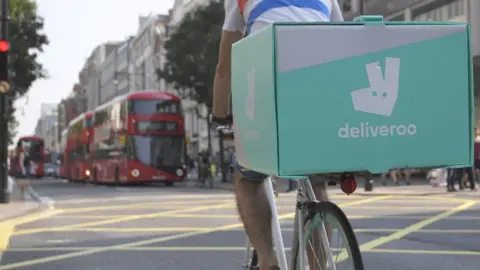Beyond Brexit: here's the PM's other big test
 Reuters
ReutersThe Prime Minister went to the World Economic Forum at Davos - and didn't talk about something. And it was quite deliberate.
Whereas almost every business leader and politician I spoke to amidst the snowy Alpine peaks wanted answers on Brexit, Theresa May spoke about the perils of uncontrolled technology.
Why?
Surely, here was a chance to reassure the global audience that the government was pushing for a good trade deal with the European Union and at the same time was set ready to forge new deals with non-EU countries.
For No 10 there is a bigger issue, though.
Mrs May's in-tray
If voters think the only thing the government is doing is Brexit - then they will not be too pleased by the time of the next general election.
This is about bandwidth and revealing that you can do more than one thing at a time - hence the focus at Davos on the might of firms such as Google and Facebook.
There is another issue jostling for top-spot in Mrs May's in-tray.
Real wages are still falling as the increase in prices outstrips the increase in earnings.
And average household incomes have only just returned to the levels people enjoyed before the financial crisis.
As we have heard on a myriad of occasions - and indeed from the PM's own lips - the economy is not working for everyone.
And whatever the final deal on Brexit, that will not solve the fundamental problems in the real economy.
In fact, many judge it will exacerbate them.
In showing "bandwidth", Mrs May is looking for opportunities.
One will be No 10's response to Matthew Taylor's government-commissioned review into the world of work.
Mr Taylor, a former advisor to Tony Blair, recommended a new commitment to all work being "good work", properly rewarded.
The rise of gig-economy firms such as Deliveroo and Uber, and the proliferation of zero-hours contracts - where employees are offered no guaranteed hours - have led to a new "precariat".
These are people in insecure work who therefore find it difficult to save or plan for the future.
Missed deadline
Although Mr Taylor has made it clear that many people welcome flexibility in the way they work, and much of the work is well-paid, he has also said that all work should receive the same basic rights to the minimum wage and holiday and parental leave, for example.
Such rights are at the moment not afforded to "gig" workers who are deemed "self-employed".
Mr Taylor also called for the tax treatment of self-employed people and full employees to be reformed so that the rates they pay are similar.
And we know what a mess the government got into over that, when they tried to increase taxes for self-employed people.
How radical will Mrs May be in her response to the report she commissioned and whose launch was so significant to Downing Street (the PM shared a platform with Mr Taylor)?
The government initially said it would respond before Christmas. So, it has missed one self-imposed deadline already.
To the left of the PM, Jeremy Corbyn has already demanded the end to all zero hours contracts and Labour described the Taylor report as a missed opportunity.
To the right, will Conservative MPs welcome more regulation for employers which have brought new and welcome services to voters and the possibility of higher taxes?
The Parliamentary arithmetic is against Mrs May - try anything too radical or too controversial, and risk defeat.
But she also needs to show voters that she understands that being in government is about more than Brexit.
Mr Taylor said that the UK economy had been very good at providing jobs. Employment levels are at a record high.
But it had been less successful at providing good jobs.
No 10 is expected to respond shortly to Mr Taylor's report.
How Mrs May tackles this "real economy" problem that affects so many people will tell us a huge amount about the type of government she wants to lead.
